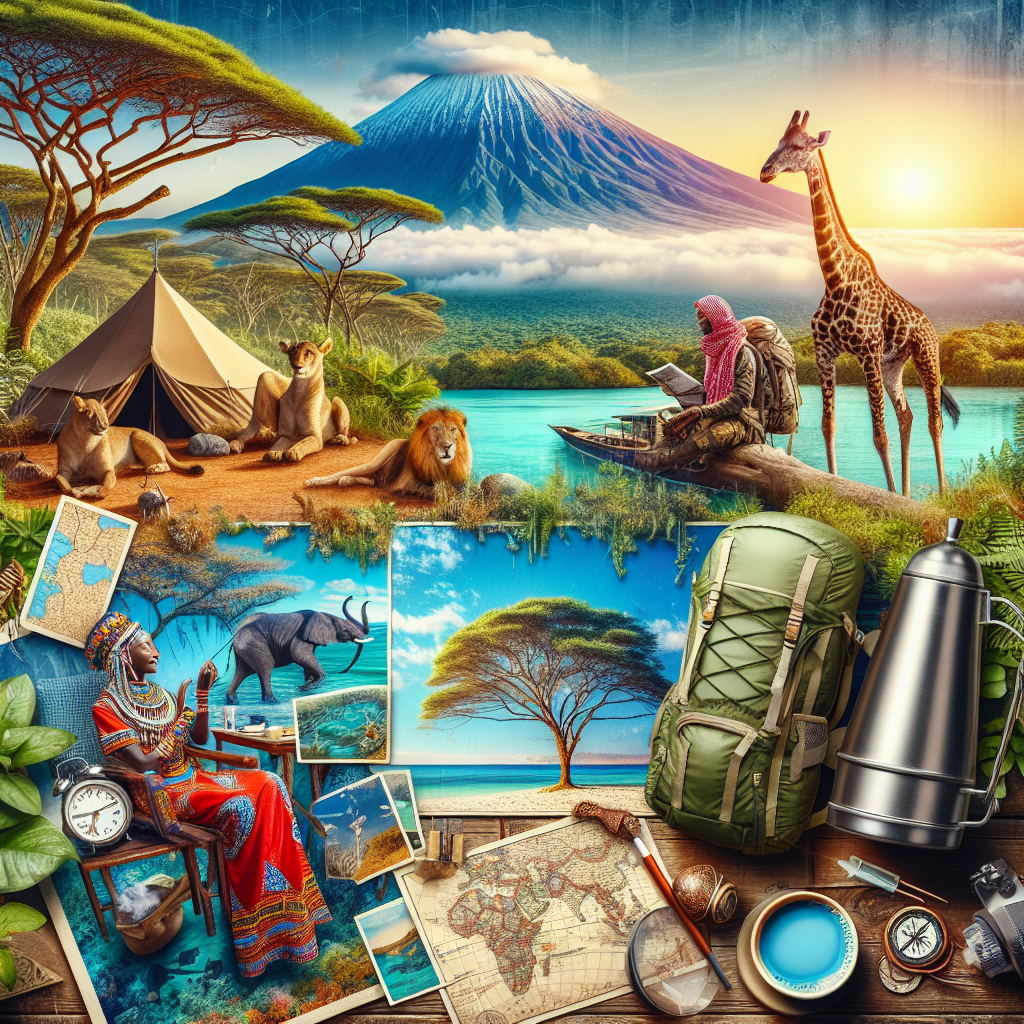The Ultimate Guide to Backpacking Tanzania on a Shoestring Budget
Tanzania, a country in East Africa, is known for its vast wilderness areas. They include the plains of Serengeti National Park, a safari mecca populated by the “big five” game (elephant, lion, leopard, buffalo, rhino), and Kilimanjaro National Park, home to Africa’s highest mountain. Offshore lie the tropical islands of Zanzibar, with Arabic influences, and Mafia, with a marine park home to whale sharks and coral reefs. Backpacking through this diverse and culturally rich country can be one of the most rewarding experiences for any traveler. However, doing so on a shoestring budget requires some planning and insider knowledge.
Planning Your Trip
1. Budgeting
Before embarking on your journey, it’s crucial to have a clear understanding of your budget. Tanzania can be an affordable destination if you plan wisely. Allocate your funds for transportation, accommodation, food, and activities. A daily budget of $20-$30 can suffice if you stick to local experiences and accommodations.
2. When to Visit
Timing can significantly affect your budget. The high season (June to October) sees a spike in prices. Consider traveling during the shoulder season (November to March), when the weather is still favorable, and costs are lower.
3. Visas and Vaccinations
Most nationalities require a visa to enter Tanzania, available upon arrival for many, costing around $50-$100 depending on your nationality. Ensure you’re vaccinated against Yellow Fever and have your certificate handy, a requirement for entry.
Transportation
1. Getting There
International flights land in Dar es Salaam, Kilimanjaro, and Zanzibar. To find the best deals, book several months in advance and consider flights with layovers.
2. Getting Around
Buses are the most economical way to travel between cities and towns. Dala-dalas (shared minibuses) offer even cheaper, though crammed, options for shorter distances. For exploring within cities, Bajajis (auto-rickshaws) and bodabodas (motorbike taxis) are affordable and convenient, though always agree on a price beforehand.
Accommodation
Staying in guesthouses or hostels is the best way to stretch your budget. Many offer dormitory-style rooms for as low as $5-$10 per night. Couchsurfing is also a popular option, offering not only a free place to stay but also a chance to meet locals and gain insights into Tanzanian culture.
Food
Street food and local eateries are your best bet for experiencing Tanzanian cuisine without breaking the bank. Dishes like Ugali (maize porridge), Nyama Choma (grilled meat), and Zanzibar pizza are both delicious and affordable, usually costing $1-$3. Avoid tourist traps and hotels where prices are significantly higher.
Activities
1. Safari
Experiencing a safari is a must in Tanzania. While some parks are pricier, others like Mikumi National Park offer a budget-friendly alternative. Joining a group safari can also reduce costs significantly.
2. Kilimanjaro
Climbing Kilimanjaro is a dream for many but can be expensive. Opt for the Marangu or Rongai routes, which are shorter and require less equipment. Again, joining a group can cut down costs.
3. Beaches
The beaches of Zanzibar are a backpacker’s paradise. Apart from a small entrance fee for some beaches, relaxing on the pristine sands of Nungwi or Kendwa is free.
4. Cultural Tours
Engage with local culture through village tours or Maasai homestays. These experiences are not only enriching but also incredibly affordable.
Tips for Saving Money
1. Haggle: Bargaining is common in Tanzania, especially in markets.
2. Travel in Groups: Sharing costs for activities like safaris can lead to significant savings.
3. Eat Local: Stick to local eateries and street food.
4. Use Public Transport: Embrace buses and dala-dalas for the cheapest way to get around.
5. Choose Free Activities: Enjoy Tanzania’s natural beauty through hikes, beach days, and exploring towns.
Recreating the Experience at Home
Back home, keep the spirit of your Tanzanian adventure alive by cooking traditional meals, creating a photo book of your journey, or even hosting a Tanzania-themed party for friends and family. Share stories of your travels, the people you met, and the beauty of Tanzania’s landscapes to inspire others.
FAQs
Q: Is Tanzania safe for solo backpackers?
A: Yes, Tanzania is generally safe for solo travelers, including women. However, as with any travel destination, it’s important to take usual safety precautions like avoiding walking alone at night and keeping valuables secure.
Q: Can I drink the tap water?
A: It’s advisable to drink bottled or purified water to avoid waterborne illnesses.
Q: Are credit cards widely accepted?
A: Credit cards are accepted in larger hotels and restaurants, especially in tourist areas. However, cash is king in local markets and smaller towns.
Q: What should I pack?
A: Lightweight and breathable clothing, a good pair of walking shoes, mosquito repellent, a high-SPF sunscreen, and a reusable water bottle are essentials.
Q: Do I need to know Swahili?
A: While English is widely spoken, especially in tourist areas, learning a few basic Swahili phrases can enrich your experience and help connect with locals.
Backpacking through Tanzania on a shoestring budget is not only possible but can lead to a deeply fulfilling and authentic adventure. With careful planning, an open mind, and a spirit of adventure, the beauty of Tanzania is within your reach. Karibu Tanzania – welcome to Tanzania!
